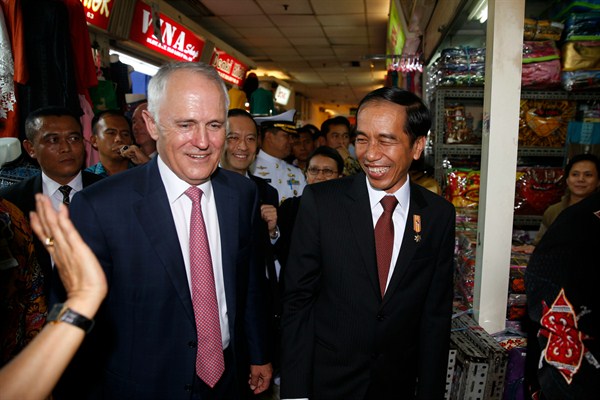Last month, officials from Indonesia and Australia met in Sydney, where they agreed to increase counterterrorism cooperation and information-sharing in response to the growing threat from the so-called Islamic State. In an email interview, Greta Nabbs-Keller, the manager of Indonesia programs at the University of Queensland’s international development unit, discusses the current state of Australia-Indonesia relations.
WPR: How have ties with Indonesia evolved under the administration of Australian Prime Minister Malcolm Turnbull, and to what extent have the two sides been able to move past recent tensions over Australia’s asylum policy and Indonesia’s execution of Australian drug smugglers?
Greta Nabbs-Keller: The replacement of Tony Abbott by Malcolm Turnbull as Australia’s prime minister in September 2015 was welcomed in Jakarta. Revelations that Australia had eavesdropped on key figures in Indonesia’s political establishment, combined with Australian maritime territorial incursions and the execution of two Australian narcotics offenders, seriously strained relations during Abbott’s tenure. Although the departure of President Susilo Bambang Yudhoyono was going to be a challenge for any Australian government, Abbott’s awkward response to a number of sensitive issues linked to Indonesia’s sovereignty alienated the new administration of Indonesian President Joko Widodo, known as Jokowi.

